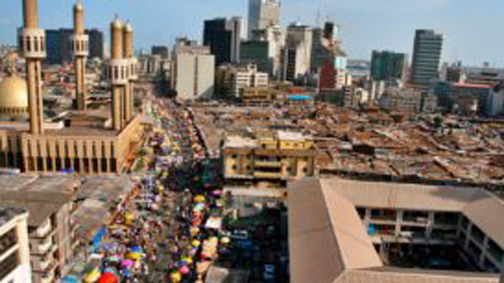
Nigeria’s output defied the odds growing by 3.46 per cent in the third quarter of the year, according to data released by the National Bureau of Statistics (NBS) yesterday.
The announcement comes amid a high inflation rate, prohibitive interest rate, and insecurity among other headwinds.
The growth is 0.92 percentage points higher than the rate recorded in Q3 of 2023, which was 2.54 per cent.
It also outperformed the projections by the World Bank and the International Monetary Fund (IMF), which projected a growth rate of 3.3 per cent and 2.9 per cent respectively.
The country is battling high inflation of 33.88 per cent, food inflation of 39.16 per cent and an exchange rate of about N1,650/$.
These have made the business environment tougher with some businesses shutting down.
The NBS report noted that Q3 was higher by 0.27 percentage points relative to the 3.19 per cent recorded in the second quarter (Q2) of 2024.
According to the report, business activities, in real terms, stood at N20.1 trillion which is higher than the Q2’s N18.2 trillion and the corresponding quarter of 2023, when the country recorded 19.4 trillion.
In his reaction, President Bola Tinubu has assured of better economic output as the economy continues to expand.
A Statement issued by Sunday Dare, Special Adviser to the President on Media and Public Communications, quoted President Tinubu as assuring that his administration has not, and will never forget his promise of a $1 trillion economy by 2030.
He assured that once the economy is rebased by early 2025 to capture its dynamism and record significant changes that have occurred in different sectors, the country will be on its way to shared prosperity.
“This performance once again shows that the reforms embarked upon by the Tinubu administration to reposition the economy and ensure better fiscal management are beginning to yield fruits.
“The proposed tax reforms also indicate the administration’s resolve to reduce the tax burden on small businesses and spread prosperity to the poor. The new Tax regime seeks to promote equity by reducing what is known as the headquarters effect—a situation where states, where company headquarters are based, get more benefits because their taxes for the whole nation are remitted—in favour of spatial and demographic equity.
President Tinubu said, “I am excited by the latest report from the National Bureau of Statistics that our economy grew in the third quarter more than last quarter and even beyond projected estimates. While I welcome this development, the latest figure also shows the much work that needs to be done. We won’t rest until Nigerians feel the positive impacts in their pockets and experience a better living standard. My administration remains committed to the welfare of our people.”
In nominal terms, aggregate GDP stood at N71.1 trillion in the period, indicating a year-on-year growth of 17.26 per cent compared to N60 trillion recorded in Q3 of 2023. It was 16.7 per cent higher than the N60.9 trillion nominal value reported in the preceding quarter.
On a sectoral basis, the agriculture sector grew by 1.14 per cent, which was lower than the 1.3 per cent recorded in Q3, suggesting that the most inclusive sector lagged behind the average growth.
The growth of the industry sector was 2.18 per cent, a modest improvement from 0.46 per cent recorded in Q3 of 2023.
In terms of share of the GDP, the services sector contributed more to the aggregate GDP compared to the corresponding quarter of 2023.
For the oil sector of the economy, Nigeria recorded an average daily oil production of 1.47 million barrels per day (mbpd), higher than the daily average production of 1.45 mbpd recorded in the same quarter of 2023 and that of Q2 when production volume was 1.41 mbpd.
The real growth of the oil sector was 5.17 per cent (year-on-year) in Q3, indicating an increase of 6.02 per cent points relative to the rate recorded in the corresponding quarter of 2023 (-0.85 per cent).
On a quarter-on-quarter basis, the oil sector recorded a growth rate of 7.39 per cent in Q3. Aligning with historical trends, oil sector contributed 5.57 per cent to the total real GDP, up from the figure recorded in the corresponding period of 2023 and down from the preceding quarter, when its share was 5.48 per cent and 5.7 per cent respectively.
The non-oil sector grew by 3.37 per cent in real terms, higher by 0.62 percentage points compared to the rate recorded in the same quarter of 2023, which was 2.75 per cent and higher than the 2.8 per cent recorded in Q2 of 2024.
Non-oil sector was driven mainly by financial and insurance, information and communication, agriculture, trade and construction.






